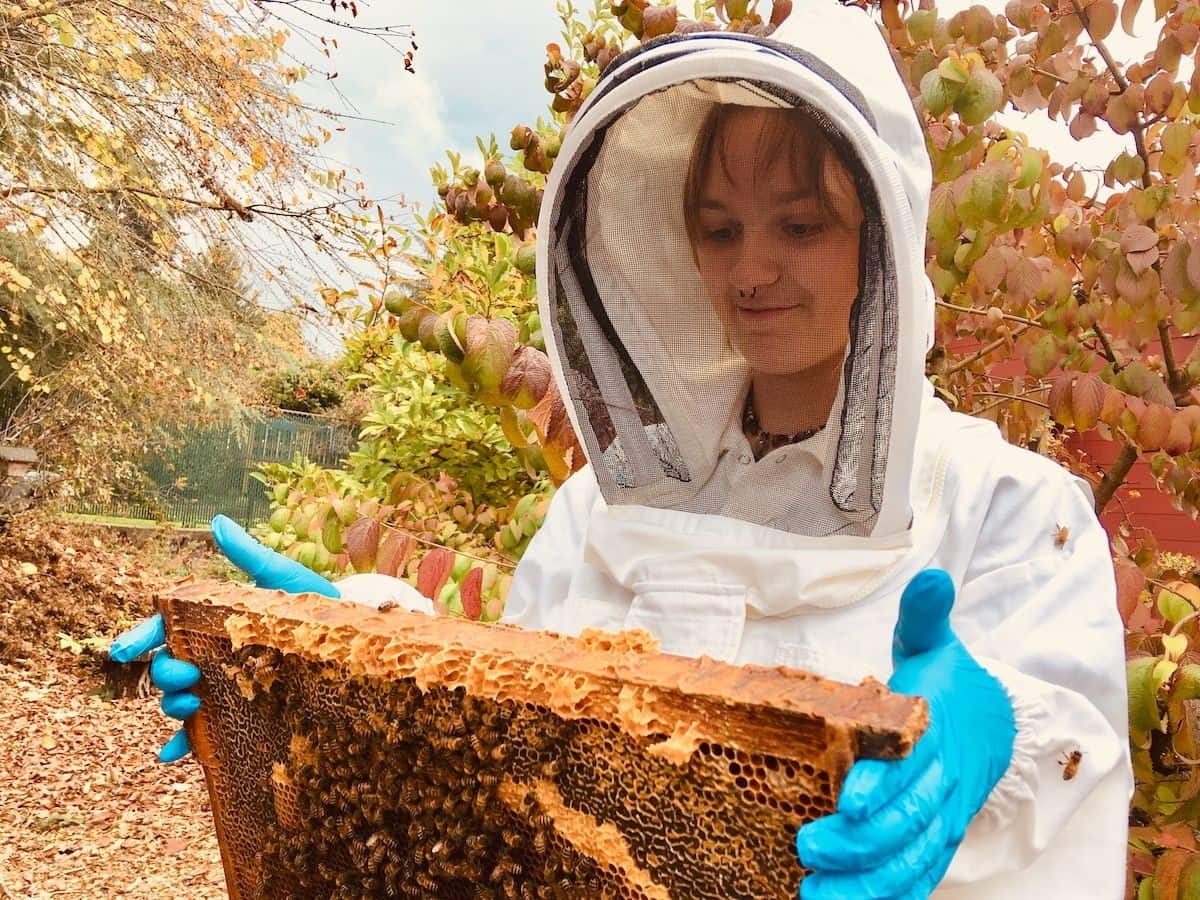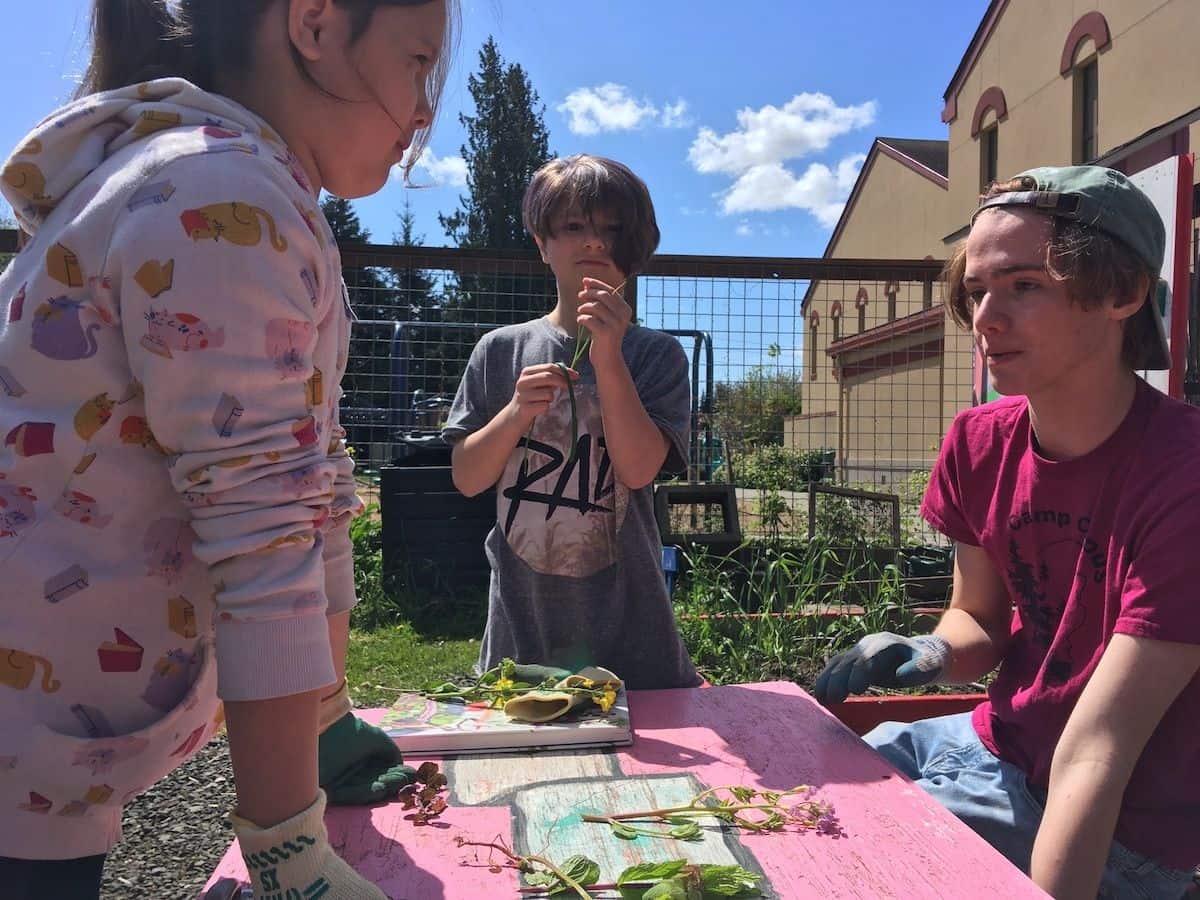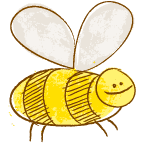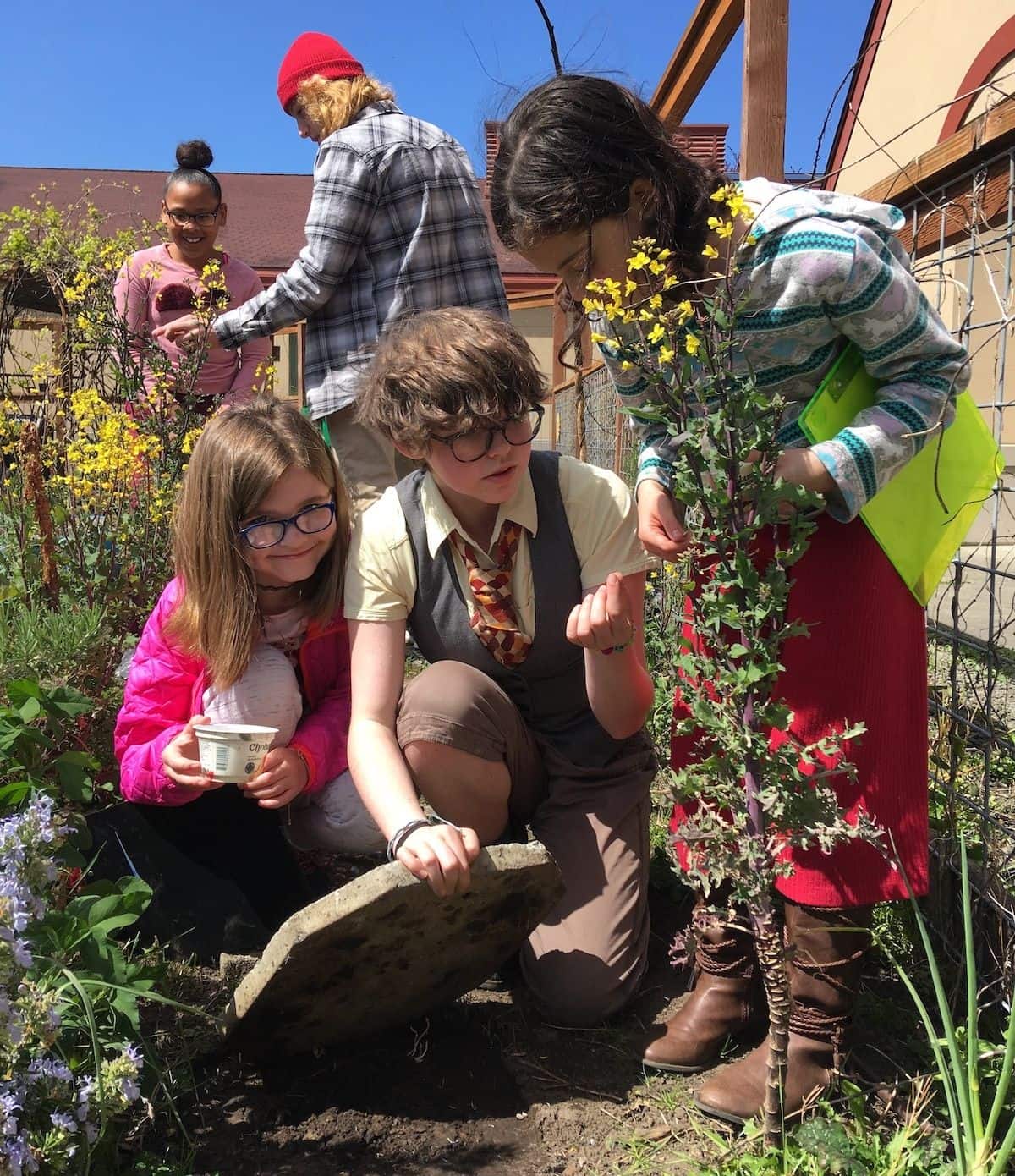The power and potential of the gardens at Madison Elementary School in Olympia, Washington, is rooted in the school’s partnership with their next-door neighbor, Avanti High School.
“I think the reason we’ve had success for this long is because the network of gardens is built into the high school curriculum.”
This mutually beneficial relationship between schools has been the key to not only encouraging the gardens’ success for more than a decade but also to helping students flourish.
Avanti High School is an innovative, alternative public high school that works within a performance-based educational framework to foster personalized learning experiences. One way the high school promotes compassion, critical thinking and creative self-expression is through its full-time Sustainable Agriculture and Natural Resources program. This offering explores forestry and aquaculture and covers topics such as: urban agriculture, alternative energy, hydroponics, aquatic ecology, native plant identification, restoration biology, and more.

For its independent student-led courses and hands-on learning courses, the Sustainable Agriculture and Natural Resources program utilizes a network of four school gardens.
The main garden, Madison Avanti Giving Garden, is a 1,000-square-foot shared food-production garden located next door at Madison Elementary School. It was the result of a collaborative effort a decade ago by parents, principals from both schools and neighbors who transformed vacant, muddy land into a thriving garden.
Since then, the two school communities have used the giving garden as a vehicle for building community, encouraging student ownership, connecting kids to the roots of their food, fostering ecological awareness and appreciation, and cultivating the next generation of environmental stewards.

Elementary students can spend time in the garden when they participate in the Garden Buddies program, when their teachers sign up for slots, or they can drop in during recess.
During the Garden Buddies program, participating high school students design and give small group lessons to elementary students teaching them about a range of gardening topics like worms, composting and seeds. Mentoring the younger students in the garden has proven to be a strong motivator for learning for the high school students themselves.
“A strength of the garden is found within the collaboration between the elementary students and high schoolers. The high schoolers get an authentic meaning,” says Quasar Surprise, Career and Technical Education & Science Teacher at Avanti High School. “And the elementary kids get really cool role models they can look up to and be excited about.”
The partnership between the schools also allows the garden to be more sustainable because as one community (like a graduating class or group of parent volunteers) wanes, another waxes. Ultimately, though, over the years, the high school students have taken a lot of ownership of the space through their hands-on learning courses and student-driven projects.
“I think the reason we’ve had success for this long is because the network of gardens is built into the high school curriculum,” explains Surprise. The students significantly contribute to the physical upkeep up of the gardens. Inarguably, having a full-time teacher overseeing the Sustainable Agriculture and Natural Resources program is another important factor in the garden's sustainability.

In 2018 Madison Elementary was awarded a Garden Grant, which was spent on two Garden Educators. These positions led lessons, oversaw the drop-in education opportunities during recess, and they planted, harvested and weeded with elementary students. The remaining funds were used to establish a “pickables” patch for young students to explore without supervision.
Traditionally, a portion of the Madison Avanti Giving Garden’s produce goes to the local food bank and to unhomed and at-risk students during occasional on-site farm stands or events.
In addition to the giving garden, there are three satellite gardens: a native plant garden, pollinator garden and a microfarm.
- The native plant garden. The plants in this space represent the various ecosystems in Washington state. (Find plants that are native in your area with the Native Plant Finder.)
- Pollinator garden. High school students researched local pollinators, proposed the project to the school board, helped secure funding, submitted designs, led educational workshops for elementary students and partnered with a local artist to build a cement sculpture that contains the native pollinator habitat.
- Microfarm. The Saigon Satellite Garden is about a 1,000-square-foot raised-bed garden. During an inquiry-based project, participating high school students made observations in the garden, brainstormed potential new uses for the space, decided to help support the school’s lunch program, and researched which crops would be best suited. The result? A microfarm designed to grow 10 different crops that can be served in the cafeteria. *

“The gardens give the high schoolers a sense of purpose and meaning that is real. And for some of the elementary students, they get somewhere to thrive. They are in their element and given a chance to show their gifts. They are measured by their talents, not deficits,” explains Surprise. “That is the power of the gardens.”



The next Whole Kids Foundation Garden Grant window is open from February 15—March 31, 2021. Learn more.
*The microfarm project was halted in the spring of 2020 because of the pandemic. There are plans to plant wheat during the spring of 2021, so students can harvest it, then bake and break bread together next fall.
Discover More Success Stories
University Place Elementary & Middle School
Tuscaloosa, Alabama
Two Rivers School
North Bend, Washington
Thomas Jefferson High School
Cedar Rapids, Iowa



